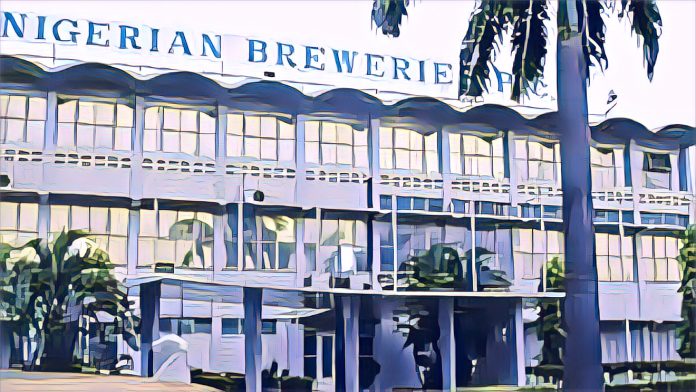Nigerian Breweries Plc, the country’s leading beer maker, posted a net loss of N106.3 billion in 2023, its first annual loss in six years, due to the massive devaluation of the naira that resulted in a foreign exchange loss of N153.33 billion.
The brewer, which is a subsidiary of Heineken NV, also faced severe economic headwinds marked by cash scarcity, removal of fuel subsidies, surging energy costs, foreign exchange scarcity and restrained consumer spending amid high inflation.
According to its audited financial results, the company’s revenue increased by 8.9 percent to N599.6 billion in 2023, driven predominantly by domestic sales amounting to N559.3 billion, while exports surged by 59 percent to N335.5 million. However, this was not enough to offset the impact of the naira devaluation, which exceeded the expectations of analysts and investors.
The naira has lost nearly 70 percent of its value since the shift to a more liberalized foreign exchange market last June, making it one of the worst-performing currencies globally. The official exchange rate hit a record low of N1,530/in January 2024, compared to N899/at the end of 2023 and N490/$ in 2016.
The currency crisis has also triggered a surge in inflation, which reached 29.90 percent in January 2024, the highest in 27 years. This has eroded the purchasing power of consumers and increased the cost of production for businesses, especially those that rely on imported inputs.
Nigerian Breweries, which has been operating in the country for more than 77 years, said it implemented strong and aggressive cost savings and other efficiency measures to cope with the challenging operating environment. However, these were not sufficient to prevent a 15 percent decline in operating profit to N44.5 billion, primarily due to rising input costs, one-off reorganization expenses, and other economic pressures.
The company also recorded a net finance cost of N189.2 billion, up from N34.4 billion in the previous year, mainly due to the foreign exchange loss of N153 billion. Other income recorded a slight decline to N2.95 billion from N2.98 billion.
Despite the dismal performance, the company’s board of directors proposed a final dividend of N0.69 per share, bringing the total dividend for the year to N0.94 per share. This represents a payout ratio of 100 percent of earnings per share, indicating the company’s confidence in its prospects and its commitment to rewarding shareholders.
Hans Essaadi, Managing Director/CEO of Nigerian Breweries Plc, said the company would continue to leverage its broad portfolio, strong supply chain footprint, and passionate workforce to drive long-term value creation for its shareholders and other stakeholders.
“In a difficult operating environment, the Board will ensure that the Company builds on its more than 77 years of experience of operating in Nigeria to cope with current realities,” Essaadi said.
The company also announced that it had executed an upward review of the prices of some of its products effective from February 19, 2024, on account of “continued rising input cost and the need to mitigate the impact.”
Nigerian Breweries is not the only brewer that has been hit hard by the naira devaluation and the economic downturn. Its main rival, Guinness Nigeria Plc, also reported a net loss of N12.6 billion for the year ended June 30, 2023, compared to a profit of N5.5 billion in the previous year. The company attributed the loss to the impact of COVID-19 lockdowns, increase in excise duty, inflation, and currency devaluation.
The brewing sector in Nigeria has been struggling with low demand and stiff competition in recent years, as consumers switch to cheaper alternatives such as spirits and local drinks. The sector’s contribution to the GDP declined by 22 percent from N1.6 trillion in 2016 to N1.2 trillion in 2019, according to data from the National Bureau of Statistics.
However, some analysts believe that the sector has the potential to bounce back if the macroeconomic situation improves and consumer confidence is restored. They also point to the opportunities for product innovation, market expansion, and cost optimization that could enhance the profitability and growth of the brewers.
Source: Business Day



